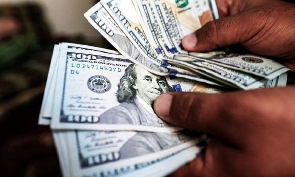The U.S. dollar and euro steadied on Thursday as concerns over the banking sector receded, while investors switched focus to inflation for more hints on central banks' next rate moves.
Inflation data from German states, used to calculate a preliminary inflation figure for the euro zone's largest economy due at 1200 GMT, have started to come in.
Consumer prices in the state of North Rhine Westphalia rose by 0.6 % month-on-month in March, versus a 1% climb in February, and were up by 6.9 % year-on-year, from 8.5% previously.
Separately, data showed that Spain's consumer prices rose 3.3% year-on-year in March, the slowest pace since the 12-month period through August 2021 and less than expected by analysts.
"With the European Central Bank explicitly data-dependent...this week’s inflation figures are set to be an important driver of the market’s rate expectations," said Francesco Pesole, FX strategist at ING.
The ECB has increased its key deposit rate by 350 basis points to 3% since July as it seeks to tame surging inflation. There are currently two 25 basis point rate hikes by the European Central Bank fully priced in by September, according to Refinitiv.
European Central Bank board member Isabel Schnabel said on Wednesday underlying inflation in the euro zone is proving sticky and the recent fall in energy costs may not pull it down as fast as some expect.
The euro edged up 0.07% to $1.0851, but was on track to end the month with a 2% gain.
The dollar index, which measures the currency against six major peers, was 0.1% lower at 102.52, as banking crisis worries faded. It was on course to clock a 2% decline for March due to market tumult triggered by the collapse of U.S. lender Silicon Valley Bank and culminated in the emergency takeover of Credit Suisse by rival UBS.
The dollar had been under pressure from the possibility that the Federal Reserve may have to relent in its fight against inflation and pause rate hikes.
But with no further signs of cracks in the financial sector and after steps taken by regulators, investor nerves have been calmed for now.
"The broader risk sentiment appears sustained as bank contagion concerns continued to fade," said Christopher Wong, a currency strategist at OCBC in Singapore.
Data on U.S. personal consumption expenditures due on Friday will provide further clues on inflationary pressures in the world's largest economy.
"With recession fears fading off, the market's focus is now turning to the upcoming U.S. PCE data later this week, which is seen as the Fed's favourite inflation parameter," said Tina Teng, an analyst with CMC Markets.
Sentiment also improved after the tech behemoth Alibaba (9988.HK) announced plans on Tuesday to split into six units, which investors have taken as a signal that Beijing's regulatory crackdown on corporations is ending.
The Japanese yen strengthened 0.4% to 132.35 per dollar, after falling 1.5% on Wednesday. The currency has been volatile in the run-up to the end of the Japanese fiscal year on Friday.
Business News of Thursday, 30 March 2023
Source: Reuters













